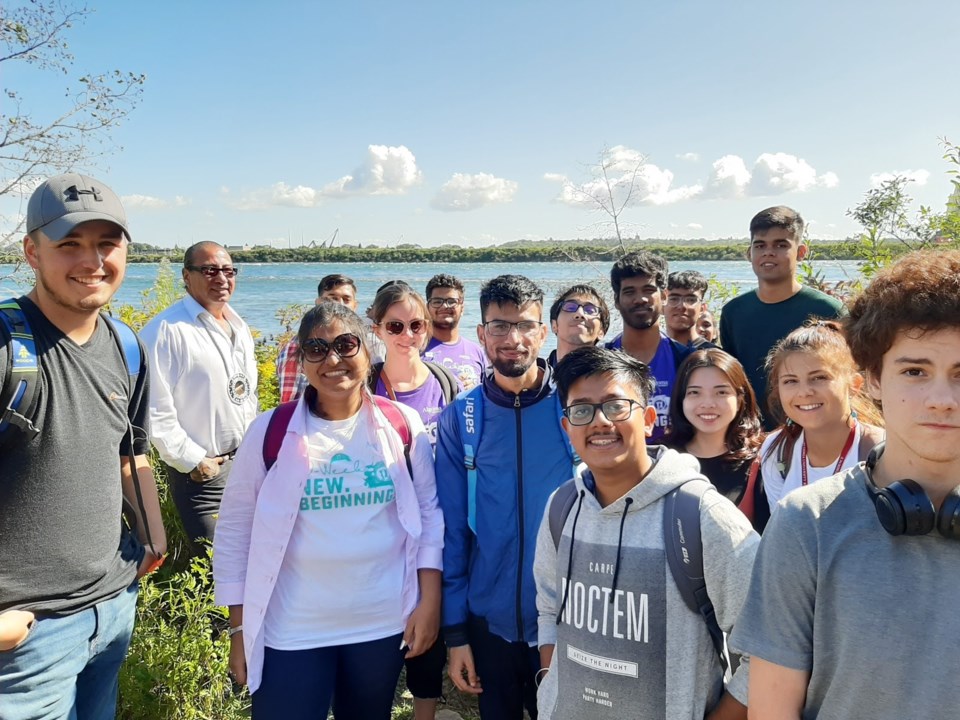Two weeks ago, on March 11, college and university students were still attending classes in their usual fashion. That same day, World Health Organization declared COVID-19 a global pandemic – and within six days – over a million students had moved online.
The rapid transition and shock thousands of students experienced through a government-mandated isolation practice (including thousands of international students who no longer had the option of returning home), put everyone’s mental health in jeopardy. Now Algoma University is addressing its wellness initiatives online with its first ever Virtual Wellness Party.
About 150 of its students from each of its campuses – in Brampton, Timmins, and Sault Ste. Marie, have registered for the April 3 “experiment.”
Janie Pepin, digital communications specialist at Algoma University, says the university arrived at the idea after a general Zoom meeting amongst its staff.
“We were all there — the communications department, the wellness departments, student services, and student life departments — and were brainstorming how we could help students through this difficult time.”
They had such a great time reconnecting themselves that they wanted to offer the same opportunity to students.
“We had that lightbulb moment because here we were in a difficult time, a pandemic, yet we were digitally connecting, laughing, socializing, and having fun — within the boundaries of a meeting,” says Pepin. “And we quickly realized that this was exactly what students were missing.”
Registered wellness participants were each mailed a “care package” that should arrive sometime before the April 3, Zoom-hosted party.
“The packages include various things — from recipes to face masks — and students will open them online at the party,” says Pepin. “There definitely will be some surprises.”
Each parcel also contains some healing elements. Elizabeth Webkamigad, Ojibway-Odawa professor and director of the Shingwauk Residential Schools Centre, is creating hand-made tobacco ties for each one.
“A tobacco tie is an offering you give in the Anishinaabe tradition,” explained Pepin. “We will also add cedar to the care packages. It is healing because you can make tea from it. For those who haven’t tried it — it is really delicious, almost sweet — most comparable to mint tea in its flavour.”
Cedar, like tobacco, is also considered to be a sacred offering, one loaded with several health benefits, including treatment for fevers, chest colds, and flu.
“It’s also a great source of vitamin C,” she says.
Each package also contains a “hand-written note”
“We really wanted it to be personal – and that’s something that a printed form letter won’t do,” says Pepin. “We want each student to feel like they matter and that they are cared for. Social interaction is what people are missing. We want students to understand that even though we are physically distanced, we can still interacted and be connected as a community.”
For the hour-long event, what Pepin says will likely be the first of many, a variety of university colleagues will be logged in.
“We’ll have staff and students facilitating from different locations – and there are a lot of hilarious people on board – so we just want to keep the energy light and fun.”
However, there will also be room for more serious conversations. Pepin and other colleagues from the university will be moderating conversations, giving students the opportunity to voice their opinions and ask questions, talk about their challenges, and facilitate some live games.
Additional coronavirus measures include the development of an Algoma University YouTube account, where students and staff have posted videos on how people are adapting to social distancing and a newly-created Algoma University Spotify playlist. For international students, the university is providing an online student hangout every Monday, Wednesday and Friday on Google Hangout.
“And there’s even more happenings in the works,” says Pepin. “This is a time for us to use our creativity to connect — and we don’t want anyone to feel left behind.”



